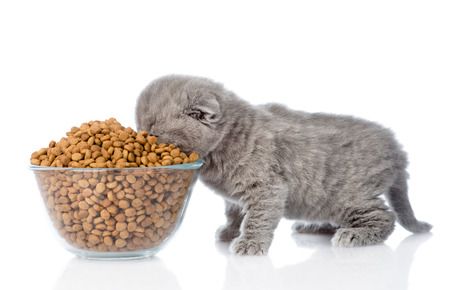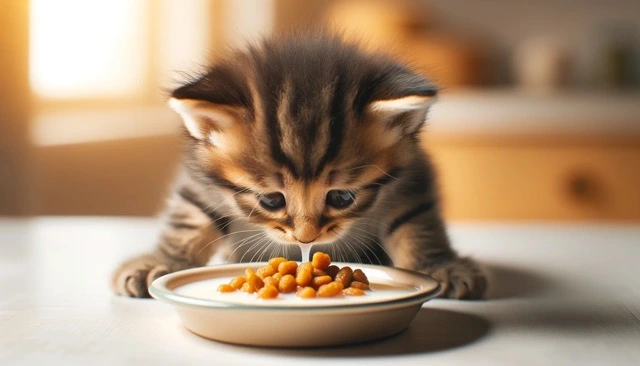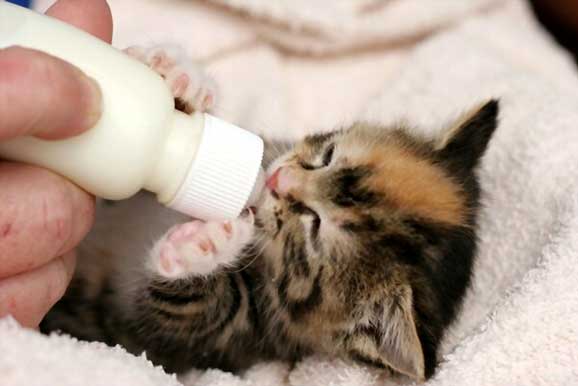When it comes to the nutritional needs of newborn kittens, ensuring they receive the best cat foods is essential for their growth and development. Newborn kittens have specific dietary requirements that differ significantly from adult cats. In this comprehensive guide, we’ll delve into what makes up the nutritional needs of newborn kittens and explore the best cat foods available to meet these needs.
The Importance of Proper Nutrition for Newborn Kittens
Newborn kittens are entirely dependent on their mother’s milk for the first few weeks of life. However, there are situations where supplemental feeding becomes necessary, such as when the mother cat is unable to produce enough milk or if the kittens are orphaned. Understanding the nutritional needs of newborn kittens during these critical stages is paramount.
Key Nutritional Requirements
- High Protein Content
- Newborn kittens require a diet high in protein to support rapid growth and development.
- Proteins are essential for building muscle, developing tissues, and maintaining overall health.
- Essential Fatty Acids
- Fatty acids like DHA and EPA are crucial for brain development and vision.
- Fats also provide a concentrated source of energy, which is vital for active and growing kittens.
- Vitamins and Minerals
- Vitamins A, D, E, and K play important roles in immune function, bone growth, and overall vitality.
- Minerals such as calcium and phosphorus are critical for the development of strong bones and teeth.
- Hydration
- Proper hydration is necessary to support metabolic processes and maintain overall health.
- While mother’s milk provides hydration, supplemental feeding might require attention to water intake.
Selecting the Best Cat Foods for Newborn Kittens
Choosing the best cat foods for newborn kittens involves understanding their dietary needs and finding products that meet these requirements. Here are some guidelines to help you make the best choice.

Formula Feeding
If mother’s milk is not available, kitten milk replacers (KMR) are the best alternative. These formulas are specifically designed to mimic the nutritional profile of a cat’s milk.
- Commercial Kitten Milk Replacers
- Ensure the formula is high in protein and fat.
- Check for added vitamins and minerals essential for growth.
- Homemade Kitten Formula
- While not recommended as a long-term solution, homemade formulas can be used in emergencies.
- Recipes should include ingredients like evaporated milk, egg yolk, and pediatric vitamins.
Transition to Solid Foods
As kittens grow, they will begin to transition from milk to solid foods. This process typically starts around four weeks of age.
- Introduction to Wet Food
- Start with high-quality, protein-rich wet foods designed for kittens.
- Wet foods are easier for kittens to chew and digest.
- Incorporating Dry Food
- Gradually introduce dry kitten food to their diet around six weeks.
- Ensure the kibble is small and easily chewable.
- Balanced Diet
- A combination of wet and dry food ensures kittens receive a balanced diet.
- Look for products with high protein content, essential fatty acids, and added vitamins and minerals.
Common Nutritional Issues in Newborn Kittens
Despite best efforts, newborn kittens can face several nutritional challenges. Identifying and addressing these issues early can prevent long-term health problems.
Malnutrition
Malnutrition can occur if kittens do not receive the necessary nutrients for growth. Signs include:
- Poor weight gain or weight loss
- Lethargy and weakness
- Poor coat quality
Dehydration
Dehydration is a serious concern, especially in newborn kittens.

- Ensure constant access to water or adequate hydration through milk replacers.
- Signs of dehydration include dry gums, lethargy, and sunken eyes.
Digestive Problems
Newborn kittens can suffer from digestive issues such as diarrhea or constipation.
- Ensure formulas and foods are specifically designed for kittens.
- Monitor for any changes in stool consistency and seek veterinary advice if necessary.
Best Cat Foods for Newborn Kittens: Top Recommendations
Here are some of the best cat foods available for newborn kittens, ensuring they receive optimal nutrition.

- Royal Canin Mother & Babycat
- High protein content to support growth.
- Includes DHA for brain development.
- Hill’s Science Diet Kitten Food
- Balanced nutrition with high-quality ingredients.
- Includes essential vitamins and minerals.
- Purina Pro Plan Kitten Food
- High in protein and contains DHA for cognitive development.
- Easy to digest and promotes healthy growth.
Conclusion
Understanding the nutritional needs of newborn kittens and providing them with the best cat foods is crucial for their development and well-being. Whether relying on mother’s milk, formula feeding, or transitioning to solid foods, ensuring a balanced and nutrient-rich diet will set the foundation for a healthy life. By following the guidelines and recommendations outlined in this guide, you can help your kittens thrive and grow into healthy adult cats.





















